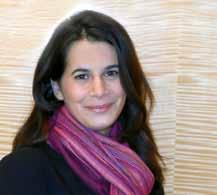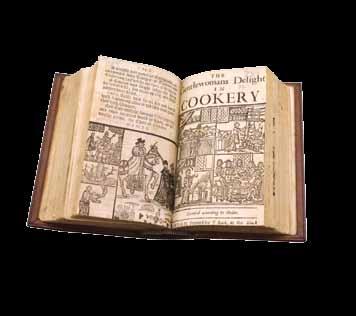Robin Christopherson MBE: Head of Digital Inclusion at Tech Charity AbilityNet Robin Christopherson (1989), has recently received an MBE for his services to digital inclusion. Robin was presented the MBE by His Royal Highness The Duke of Cambridge at Buckingham Palace shortly after it was announced in the New Year Honours list. We caught up with Robin to interview him about his career and how, as a blind person, technology has helped him and others to reach their full potential.
help get the message about how tech can transform people’s lives regardless of their particular abilities then it’ll be an amazing milestone in my life. Just enabling more people to hear the phrase ‘digital inclusion’ with regards to my honour must help get the message out.
I must first ask you about your MBE; what was it like going to Buckingham Palace?
Digital inclusion means designing apps, websites, gadgets and digital services to be inclusive so anyone can use them. Computers are incredibly powerful and offer numerous choices when it comes to how one uses them. Even at Cambridge, getting a truly excellent education would have been nearly impossible without the right tech to get round my difficulties.
Going to the Palace was an extraordinary experience. It was amazing to be surrounded by so many who have made significant contributions to people’s lives across a wide range of areas, and meeting His Royal Highness The Duke of Cambridge was incredible. He was very interested and well informed. Considering there were over seventy people receiving their honours that day he must have a prodigious memory as he asked me about AbilityNet and had no notes or official briefer whispering in his ear. He also said that the corgis would sniff out my guide dog, Archie, later and we’d see which were better behaved. He suspected that it would be Archie. I didn’t feel like I personally needed to be recognised as I’ve just felt lucky being able to do what I do, but if it will 8 MAGDALENE MATTERS
What exactly is ‘digital inclusion’?
You helped found technology access charity AbilityNet in 1998. Tell us about your work there and how it’s changed over the years? Yes – I’ve been with AbilityNet since the very start and am by now the longest-serving employee by some years. This means I’ve either well and truly found my calling or that no one else wants me. In that time AbilityNet has grown enormously and now provides a wide range of services such as website and mobile accessibility consultancy (a team which grew from
an initial piece of consultancy I did back in 2003) and for several years I headed that team. Now that team is delivering expert services to hundreds of clients including global names such as Microsoft and HSBC and household names such as Sainsbury’s and the BBC. That’s quite enough about my involvement, however, as that’s nothing compared to what AbilityNet is all about – and that’s empowering people through accessibility and technology. So much has changed in the last nearly two decades. In fact so much has changed in the last two months and continues to do so. As a blind person I’m just one example of how tech has helped improve the life choices for people with disabilities. We now have all the power of computers with us wherever we go – and with a range of sensors such as camera, GPS, accelerometer and compass etc that, when perhaps one or more of your own senses don’t work, can be incredibly empowering. Whereas a disabled person used to have to purchase expensive (and often relatively limited) devices, they can often now use mainstream gadgets such as a smartphone that have all the necessary accessibility features built-in and which offer thousands of apps that have the same functions for a fraction of the price.











